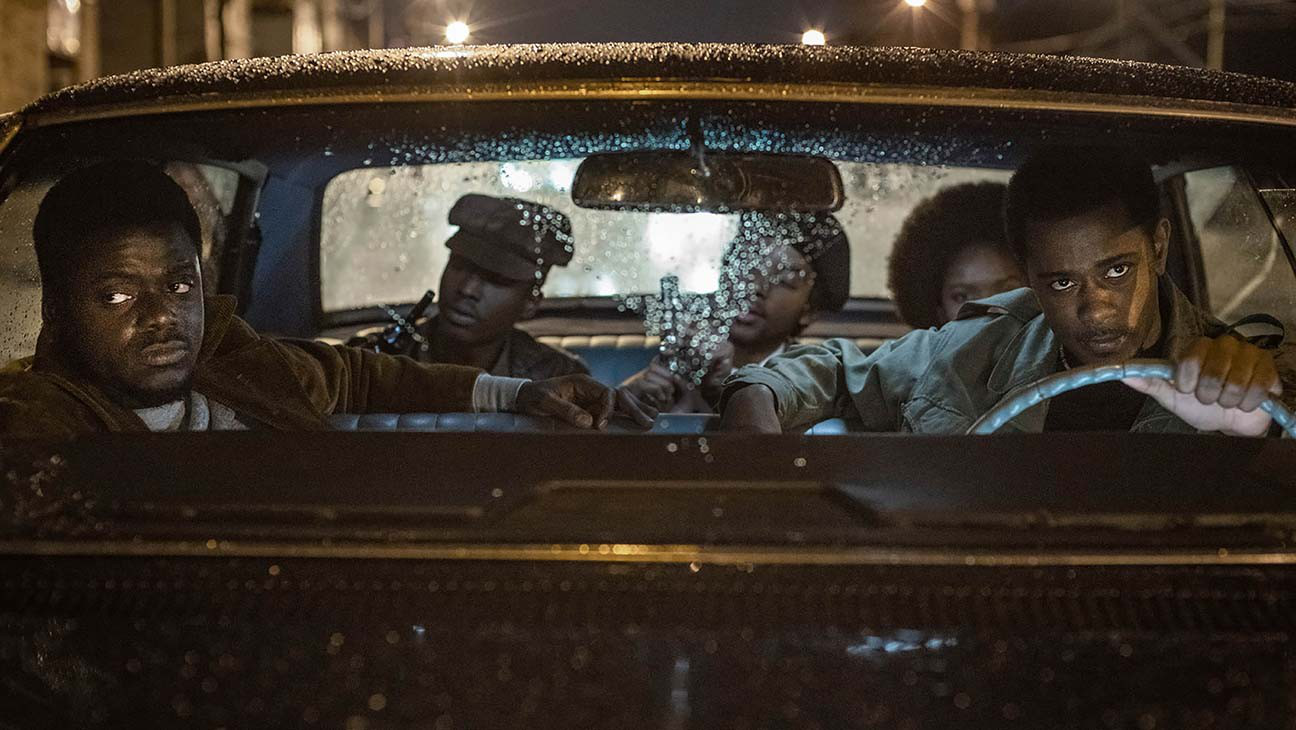Illinois Black Panther Party leader Fred Hampton (Daniel Kaluuya) and FBI informant William O’Neal (LaKeith Stanfield) ride in the dark of night in order to evade the nearby police on the hunt for activists. Photo courtesy of Sundance Film Festival.
By Anthony Garza, Staff Reporter
Not much has changed in the 50 years that the Black Panther Party formed in terms of police brutality, demands for social justice and institutionalized racism. But one thing that has changed is the sympathetic narrative around the party, as “Judas and the Black Messiah” shows.
The Black Panther Party uprising, white America’s worst nightmare during the 1960s, was exacerbated by protests, sit-ins, and the overall determination for justice regarding police antics against Black people. From the get-go of the film, Hampton is already running the Black Panther operation like a well-oiled machine.
However, the reign of FBI Director J. Edgar Hoover (Martin Sheen) saw the assassinations of two prominent Black leaders; Malcolm X and Martin Luther King Jr. under his COINTELPRO (counterintelligence program) directive, and Black America is angry. This is where we meet Fred Hampton (Daniel Kaluuya) and the Chicago Black Panther Party, as they struggle to strive for equality between African Americans and the police.
‘Judas and the Black Messiah,’ set in the 1960s, is a dramatized biopic about Hampton that sheds light on the Black Panther Party operatives, the betrayal and his untimely death at the hands of undercover FBI informative William O’Neal (LaKeith Stanfield.)
King had to make the audience believe that one man had the power to inspire an entire race. One of the ways the film depicted the tensions between police and Black activists was the slur “pigs”. Hampton’s emphatic speeches would spew slurs like these to display his frustrations such as disdain of officers continuously abusing their power to squash the little hope Black people would gain from Hampton’s own rallies.
Kaluuya’s portrayal of Hampton delivering powerful speeches was nothing short of exhilarating as you could see the pain in his eyes and here the determination in his voice as he screamed, “I am a revolutionary.” The film enlightened the dark reality that came with being a Black revolutionary during the 1960s. From shootouts to bloated prison sentences, a Black man with a dream could soon turn into white America’s worst nightmare.
The perspective then shifts to the character nervously portrayed by LaKeith Stanfield rising in the ranks in the eyes of the FBI but digging a deeper hole in the betrayal of his own people. After a car theft gone wrong, O’Neal finds himself with an ultimatum at the hands of FBI agent Roy Mitchell (Jesse Plemons). A five-year jail sentence or have all the charges dropped but be an informant of the Illinois Black Panther Party giving the feds valuable information of their operation as well as the whereabouts of Hampton.
All of these efforts for justice, unbeknownst to the Illinois Black Panther Party, were being foiled by their very own, William O’Neal. On an emotional note, “Judas and the Black Messiah” culminates in the assassination of Hampton in his own apartment thanks to the cooperation of O’Neal. This tragic scene defined the Black Panther Party’s very own message about bodily harm done to Black people at the hands of police but easily transcended and highlighted the very same issues that Black people face today.
Fast forward to present-day, 2021, Black Panther co-founder Bobby Seale paid a virtual visit to CSUDH to speak about the hardships they faced back then. Seale also touched on how the media’s perception of the Black Panther Party has changed. Their ideology “was all about education and educating the Black people,” Seale said. This quote stood out for one reason, all that Fred Hampton along with other activists were trying to do, educate.
Seale also touched on how the Black Panther Party tried to unite everyone rather than divide. His goal was “to capture the imagination of the people.”
“I want all the young folk and people out there struggling and evolving to keep in mind, your practice, thinking, understanding and realization,” Seale said.“Making sure your ideas and beliefs correspond to reality, to search, obtain knowledge, assimilate the facts…this is [what life is all about].”
Seales’ visit was a message to be curious about everything that you do. To never be complacent in the world we live in and to stand for justice just like Fred Hampton, Bobby Seale, and so many other activists did.

